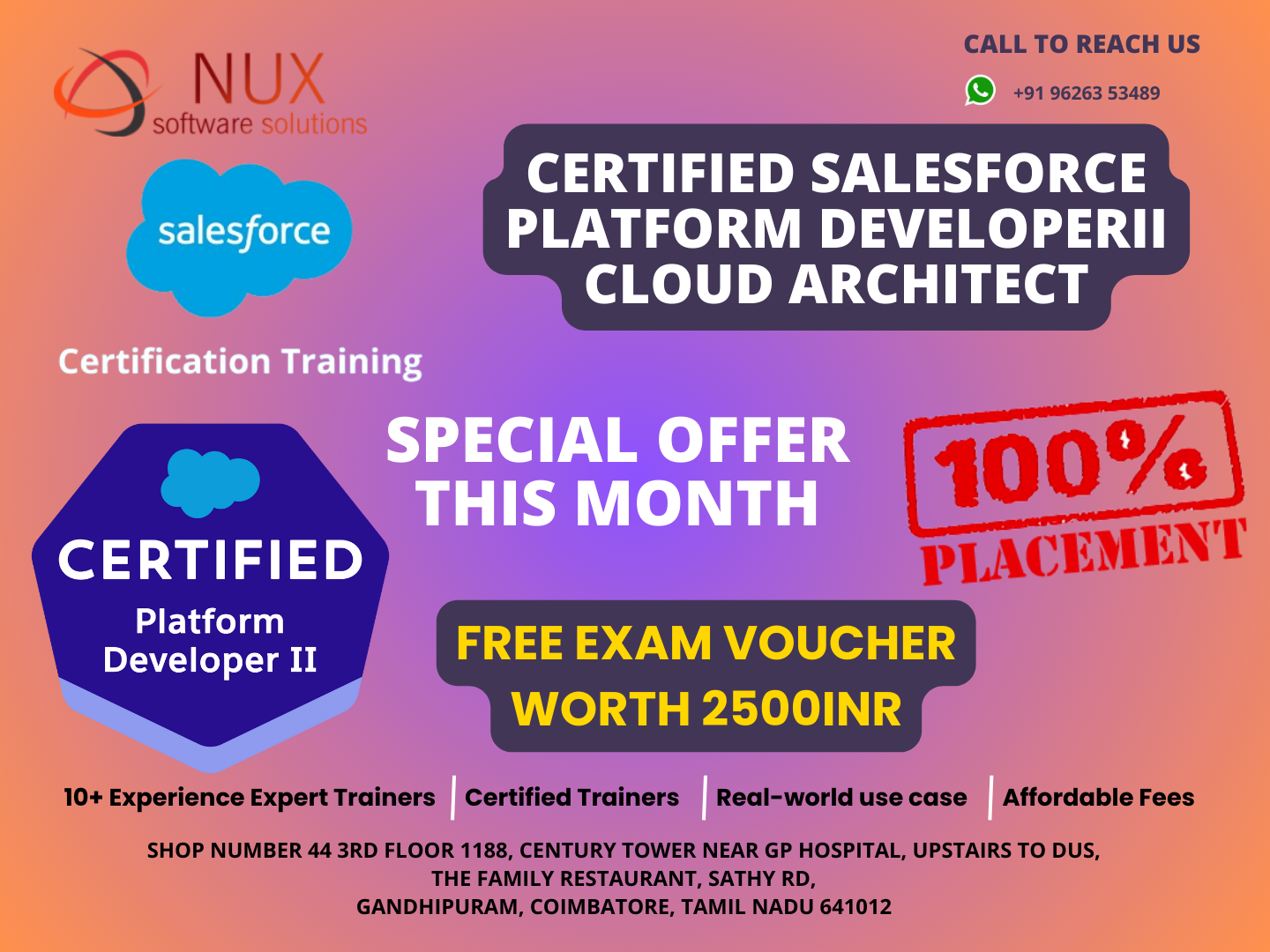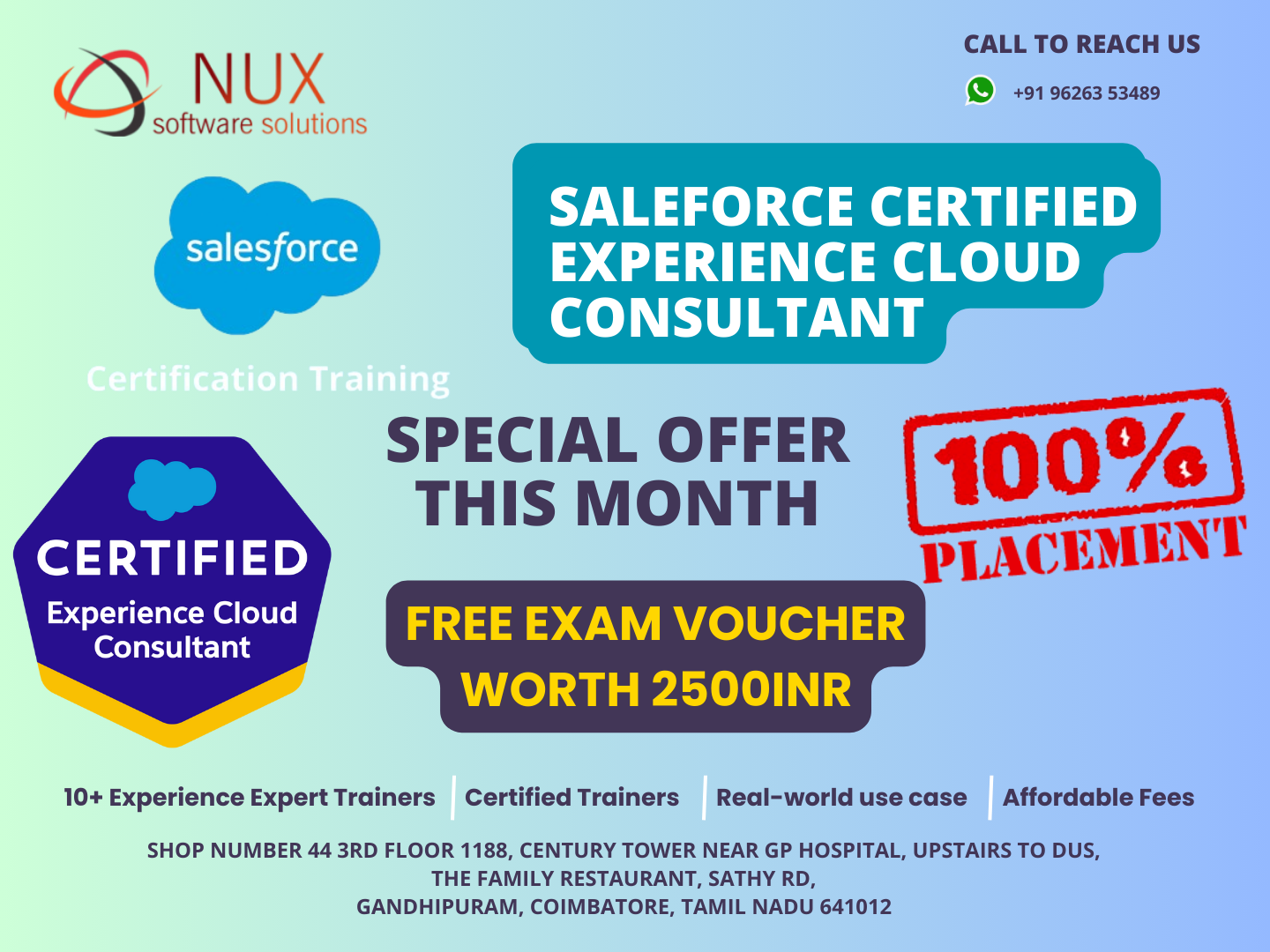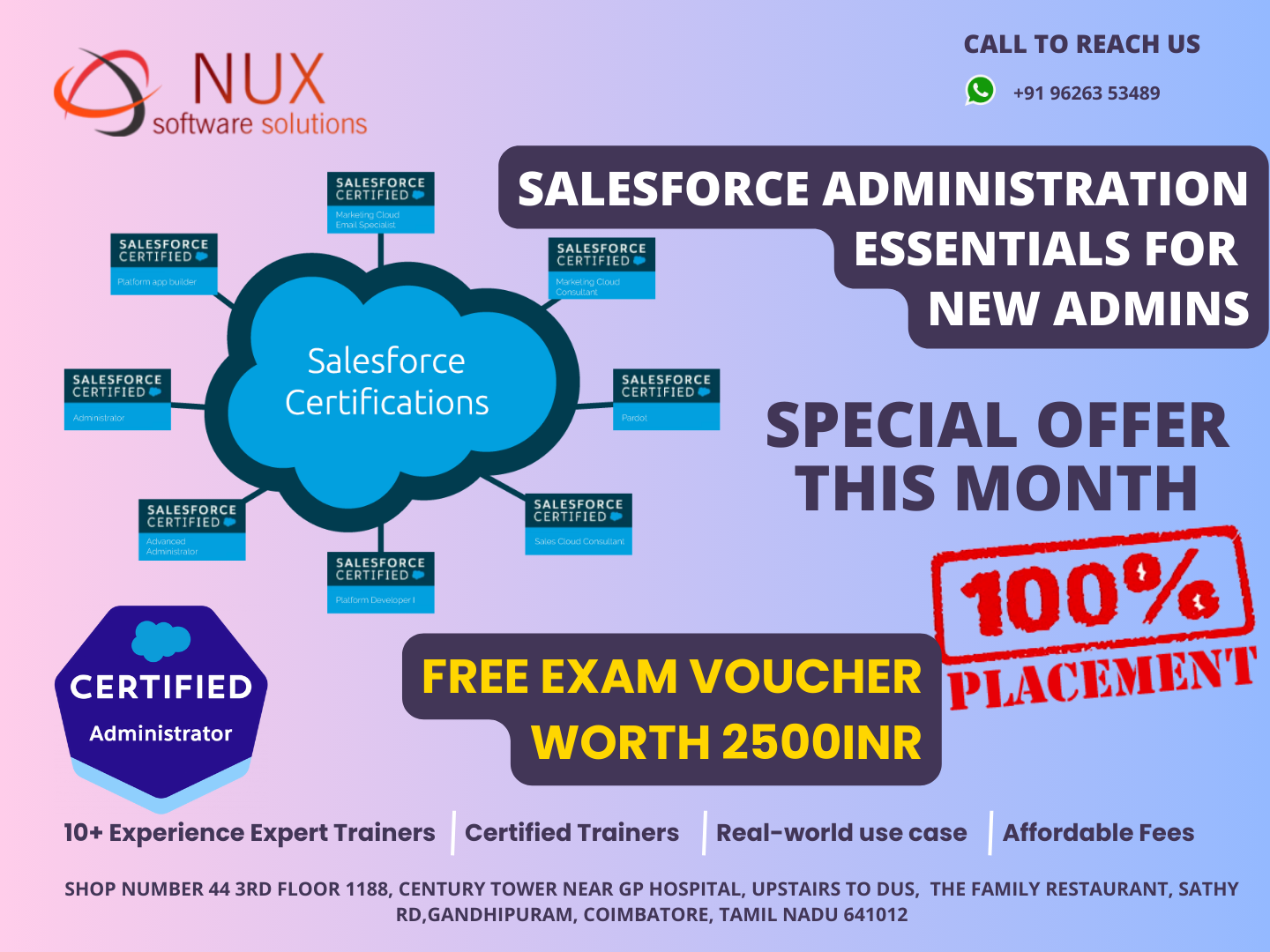Certified Salesforce Platform DeveloperII cloud architect


Nux Software Training & Certification Solutions in Coimbatore appears to offer excellent Certified Salesforce Platform Developer II training courses. With advanced programs, industry-expert trainers, and a conducive training center environment, they prioritize delivering a high-quality learning experience. The accessibility of labs 24/7 from anywhere adds to the convenience and flexibility of the training. The presence of international expert trainers with real-time industry experience enhances the overall educational value. The emphasis on innovative learning methods and flexibility in training programs demonstrates an understanding of individual needs and career aspirations. It seems like an ideal destination for professional, individual, corporate, live project, and industrial training, promising significant career growth
The Salesforce Administrator credential is tailored for individuals with experience in Salesforce who actively seek ways to assist their companies in maximizing the benefits of additional features and capabilities. It is designed for professionals who aim to enhance their skills and contribute to their organizations by effectively managing and optimizing Salesforce implementations. This certification recognizes the expertise of individuals who play a crucial role in maintaining, customizing, and evolving Salesforce systems, ensuring they align with the evolving needs of their businesses. It’s an acknowledgment of their commitment to staying informed about the latest Salesforce updates and utilizing them to drive efficiency and success within their organizations.
Course Syllabus
Certified Salesforce Platform DeveloperII Syllabus
Advanced Developer Fundamentals - 15%
- Demonstrate knowledge of localization and multi-currency features and capabilities and how they affect coding.
- Given a scenario, justify using sharing objects and Apex managed sharing.
- Given a scenario, identify best practices for various types of custom metadata and custom settings, and how to implement required solutions.
Process Automation, Logic, and Integration - 27%
- Given a scenario, identify the considerations of interactions between multiple processes, both declarative and programmatic.
- Given a scenario, propose and justify the optimal programmatic or declarative solution.
- Demonstrate knowledge of the best practices for writing Apex triggers.
- Describe the Apex features available for error handling and maintaining transactional integrity.
- Demonstrate how and where to use advanced keywords in a SOQL query structure.
- Analyze a set of requirements and determine the benefits of using asynchronous Apex coding.
- Given a scenario and requirements, identify the appropriate dynamic Apex feature to use in the solution.
- Given a scenario, identify the appropriate publish / subscribe logic for platform events.
- Given a scenario, apply programmatic integration techniques and platform features for inbound and outbound communication.
User Interface - 20%
- Given requirements and code snippets for a Lightning Web Component or Aura Component and its Apex controller class, analyze and determine necessary changes to the Apex class.
- Identify the techniques for using Visualforce to perform actions, partial page refreshes, and asynchronous operations.
- Given a scenario, identify best practices for displaying errors in the user interface.
- Given a set of requirements, select the appropriate Lightning Web Component, Aura Component, or Visualforce solution and describe its benefits.
- Given a scenario, describe the aspects of Lightning Web Components or Aura Components that can be used to cause elements in a component's markup to display in a responsive manner based on a device's form factor.
- Given a scenario, implement the correct method to communicate events through Lightning Web Components or Aura Components.
- Describe the purpose and benefit of static resources in Visualforce, Lightning Web Components, and Aura Components.
Testing, Debugging, and Deployment - 20%
- Apply advanced techniques and tools for testing Apex classes and triggers, such as mocks and stubs.
- Apply techniques and tools for testing and debugging Lightning Web Components, Aura Components, and Visualforce controllers, Visualforce controller extensions, and JavaScript.
- Given a scenario, Apex code, Apex trigger, or Apex test that is not executing as expected, apply techniques and tools to isolate and identify the root cause.
- Given a scenario, formulate the deployment process, supporting tools, and mechanisms for source-driven development.
Performance - 18%
- Identify the common performance issues for user interfaces and demonstrate knowledge of techniques and tools to mitigate them.
- Given a scenario, choose the appropriate logic and query structure to maximize application performance and handle large data volumes.
- Analyze a given scenario and determine performance improvements that can be achieved with an asynchronous callout.
- Select scenarios where code reuse is applicable and how the reuse should be implemented.
- Given sample code, identify inefficiencies and demonstrate the ability to resolve them.


